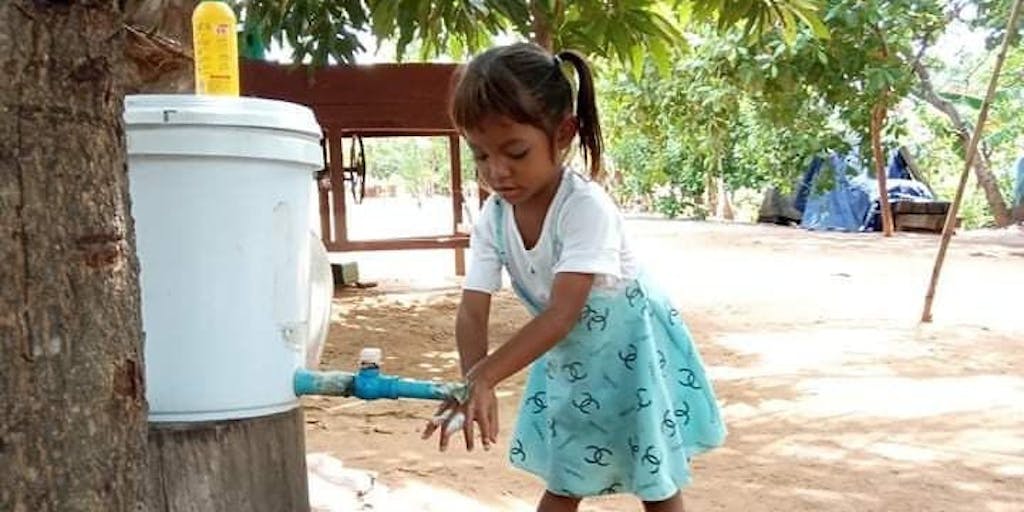Did you know that October 15 is Global Handwashing Day? We know handwashing is an important part of good health and hygiene, especially in a time of COVID-19. We are routinely taught to wash our hands. This year, 2020, has turned a simple classroom lesson into a life-saving activity. According to the CDC, one of the most proactive ways to prevent the coronavirus is to simply wash our hands.
Here at Food for the Hungry (FH), efforts focused immediately on teaching proper handwashing. Every day is Handwashing Day in FH communities! It’s recommended to wash your hands with soap and water for at least 20 seconds. But what does handwashing look like for poverty-stricken communities that may not have running water? See some stories below that came straight out of Cambodia!
Cambodia: Phy Nary’s Handwashing Story
Phy Nary said, “FH Cambodia helped my family and community to get through the impact of COVID-19. FH staff demonstrated to us how to protect ourselves from COVID-19. Key lessons included how to wash our hands with soap, using hand sanitizer, and how to prevent the virus through covering with a face mask. FH also taught us how to live our lives with good health and sanitation practices. We were encouraged to always eat good food and drink clean water that made our health well in the community, and to explain these virus prevention concepts to our children. These teachings were to prevent COVID-19 transmission in the village.”
Phy Nary further explains, “I also picked up what I had learned from FH to share/distribute the information and other lessons with my neighbors.”

Cambodia: Mr. Rinh Ne’s Story
Mr. Rinh Ne, a Chief Village in Chhes Chan Village created a handwashing station for his family to prevent the COVID-19 pandemic. Leadership in villages like Rinh Ne’s means showing people in very concrete ways how they can prevent disease transmission. FH spread the word about this important tool in COVID-19 prevention by teaching leaders, who then took their new knowledge to others in the community. Often leaders like Rinh Ne learned the techniques using cell phone apps, since FH staff couldn’t travel to communities due to lockdowns.

Cambodia: Mrs. Khoeun Sokhean’s Story
Mrs. Khoeun Sokhean said, “FH staff supported our community through a [cell phone] call and then taught us how to curb the COVID-19 pandemic. They also taught us how to wash our hands properly and encouraged us to wash our hands often with soap, clean our houses, and take a bath more often. When coughing or sneezing, we had to use our elbows or krama cloth to cover our mouth and avoid crowded places. When going out, we wore a mask, used our vehicle, and kept a physical distance of at least two meters.”

What are some ways you can help, on World Handwashing Day? You can help bring clean water to the next community.
Continue reading
On the Frontlines: Preventing Coronavirus in Cox’s Bazar

